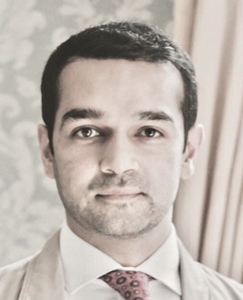
Many conditions we see in primary healthcare are self-limiting and ‘wait and see’ can be a legitimate management approach. This is often a profound learning point for students and trainees who have developed their early clinical thinking by observing hospital care. Although it is long-established as a strategy, there is little research examining how the public perceives this, prompting an Australian team to analyse it through exploratory interviews.1 Participants generally accepted a ‘wait and see’ approach, although less so for some illnesses and in some circumstances. They wanted it at least presented as an option when appropriate, with ‘symptom management’ identified as the most reassuring term. The authors also highlight that when this option is pursued, clinicians should whenever possible provide a clear plan for the waiting period.
Identity loss has long been debated by sociologists of chronic illness, as it raises important questions about the roots of existence. A UK research team recently examined this notion using Long COVID (LC) as an example.2 Interviews with 80 patients with LC highlighted that living with persistent and often uncertain symptoms can cause the loss of biographical resources and resilience, making it difficult to understand their own being within the world. The authors suggest that families and professionals should be offered education to facilitate a more sympathetic environment to help LC patients to better make sense of, justify, and adapt to ruptures in the continuity of their lives.
…two prominent facets contributing to healthcare data breaches are noncompliance with information security policies and a lack of security awareness among healthcare workers.
Personal health data is extremely valuable to hackers, much more so than other valuable information such as credit card records. Breaches of this data can cause serious harm to individuals and protecting privacy is now a critical aspect of healthcare policy around the world. A recent Australian study systematically analysed 5470 records and reviewed 120 articles on this important topic, summarising the existing literature and developing an integrative model.3 They highlight that two prominent facets contributing to healthcare data breaches are noncompliance with information security policies and a lack of security awareness among healthcare workers. They also note external factors including data protection failures in third-party sources, the influence of organizational characteristics such as size, and the need for collective responses and collaboration in healthcare cybersecurity.
Patient organisations play an increasingly influential role in the pharmaceutical sector, although their impact has received little attention to date. This prompted a London research team to examine the impact of patient organisations on R&D activity in the context of rare diseases in Europe using a proprietary dataset that maps clinical trials across 29 countries over a 30 year period (1990–2019).4 They found that patient organisations play an important role in steering R&D efforts in rare diseases, although they note a lag in effects suggesting it takes approximately five years for these organisations to affect R&D activity. The more interesting question is whether there are negative or unintended consequences arising from this, although this was unfortunately beyond the scope of this study.
Podcast of the month: I promise I’m not a conspiracy theorist but I don’t mind admitting I was captivated by The Cows Are Mad https://www.bbc.co.uk/programmes/m001rrhy
References
- Abukmail E, Bakhit M, Hoffmann TC. Exploring individuals’ perceptions and acceptability of a ‘wait and see’approach for managing self-limiting illnesses: A qualitative study. Patient Education and Counseling. 2024 Jan 1;118:108032.
- Fang C, Baz SA, Sheard L, Carpentieri JD. ‘I am just a shadow of who I used to be’—Exploring existential loss of identity among people living with chronic conditions of Long COVID. Sociology of Health & Illness. 2023 Jun 1.
- Pool J, Akhlaghpour S, Fatehi F, Burton-Jones A. A systematic analysis of failures in protecting personal health data: A scoping review. International Journal of Information Management. 2024 Feb 1;74:102719.
- Gentilini A, Miraldo M. The role of patient organizations on research and development: Evidence from rare diseases. Social Science & Medicine. 2023 Oct 17:116332.








